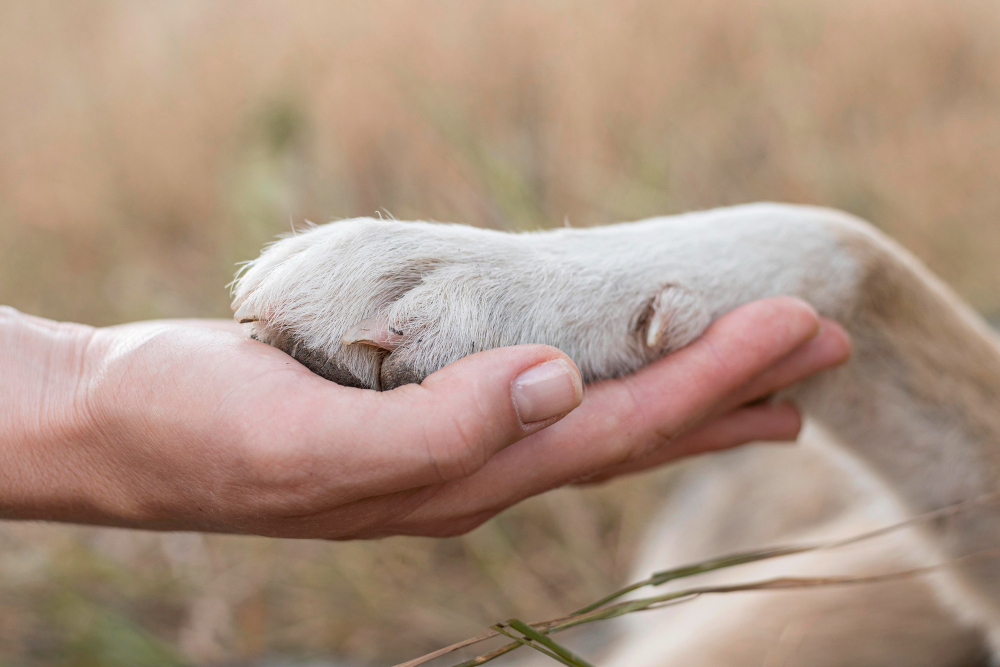When to Say Goodbye: A Guide for Dog Parents

When to Say Goodbye: A Guide for Dog Parents

Deciding when it's time to say goodbye to your beloved dog is one of the most heart-wrenching decisions any pet parent will face. The bond between you and your furry companion runs deep, and knowing when their quality of life has declined to the point where letting go becomes an act of love requires careful consideration and compassion.
Many dog owners in Jupiter, FL find themselves asking the same difficult questions: Is my dog suffering? Am I holding on too long? How will I know when it's time? These concerns are natural and show just how much you care about your pet's wellbeing. Understanding the signs and having honest conversations with veterinary professionals can help guide you through this challenging time.
The decision becomes even more complex when you consider the options available, including in home euthanasia services that allow your pet to pass peacefully in familiar surroundings. Let's explore the key indicators that may signal it's time to consider this final act of love for your canine companion.
Recognizing Quality of Life Changes
Quality of life serves as the primary measure for determining your dog's wellbeing. Unlike humans, dogs cannot verbally communicate their pain or discomfort, making it essential to observe behavioral and physical changes carefully.
Physical Signs to Monitor
Your dog's body language often tells the story of their comfort level. Difficulty standing, walking, or maintaining balance may indicate significant pain or weakness. Labored breathing, especially when resting, can signal respiratory distress or organ failure. Loss of appetite that persists for several days, combined with rapid weight loss, often indicates serious underlying issues.
Incontinence that develops suddenly in a previously house-trained dog may suggest loss of muscle control or neurological problems. Additionally, if your dog can no longer perform basic functions like eating, drinking, or moving without obvious distress, their quality of life has likely diminished significantly.
Behavioral and Emotional Indicators
Dogs experiencing pain or illness often withdraw from family activities they once enjoyed. Your typically social pup may start hiding, avoiding interaction, or showing little interest in favorite toys or treats. Sleep patterns frequently change, with some dogs becoming restless while others sleep excessively.
Changes in personality can also provide important clues. A gentle dog might become irritable due to pain, while an active dog may become lethargic and unresponsive. Pay attention to whether your dog still shows joy or excitement about anything, as complete disinterest in surroundings often indicates significant distress.
Medical Conditions That May Signal the End
Certain diagnoses carry different prognoses and timelines, helping inform your decision-making process. Cancer, kidney disease, heart failure, and neurological disorders each present unique challenges and considerations.
Progressive Diseases
Terminal cancer diagnoses often come with estimated timeframes, but every dog responds differently to treatment. Some may have good days mixed with bad days, while others experience steady decline. The key lies in monitoring whether good days become increasingly rare.
Kidney disease progresses gradually, but end-stage symptoms include persistent vomiting, complete loss of appetite, and difficulty urinating. Heart failure may cause increasing difficulty breathing and reduced activity tolerance. These conditions often reach points where medical intervention no longer provides meaningful comfort or improvement.
Sudden Health Crises
Sometimes acute emergencies force immediate decisions. Severe injuries from accidents, sudden organ failure, or acute illness may create situations where recovery is unlikely or would involve prolonged suffering. These scenarios often require quick consultation with emergency veterinary services to understand treatment options and prognoses.
The Importance of Professional Veterinary Guidance
Your veterinarian plays a crucial role in helping assess your dog's condition objectively. They can evaluate pain levels, discuss treatment options, and provide honest prognoses based on medical expertise and experience with similar cases.
Asking the Right Questions
During veterinary consultations, ask specific questions about your dog's prognosis. What does the typical progression look like for their condition? What treatment options exist, and what outcomes can you reasonably expect? How can you best manage their pain and comfort at home?
Don't hesitate to ask about quality of life assessments. Many veterinarians use structured evaluation tools that consider mobility, appetite, hygiene, happiness, and other factors to help guide decision-making objectively.
Second Opinions and Specialist Consultations
For complex cases, seeking second opinions or specialist consultations can provide valuable additional perspectives. Veterinary oncologists, neurologists, or internal medicine specialists may offer treatment options your regular veterinarian cannot provide, or they might confirm that comfort care represents the most humane path forward.
Understanding Your Options
When the time comes to say goodbye, you have choices about how and where your dog's final moments unfold. Traditional veterinary clinic euthanasia remains common, but many pet parents are discovering the benefits of in home euthanasia services.
The Comfort of Home
In home euthanasia allows your dog to remain in familiar surroundings during their final moments. This option eliminates the stress of car rides and clinical environments, potentially providing a more peaceful experience for both you and your pet.
Many dogs find comfort in their favorite sleeping spots, surrounded by familiar scents and sounds. Family members can be present without the constraints of clinical schedules or space limitations. This setting often allows for more time to say goodbye and process emotions without feeling rushed.
Professional Support During Difficult Times
Veterinarians who provide in home euthanasia services understand the emotional weight of these situations. They typically allow ample time for the process, answer questions thoroughly, and provide guidance about aftercare options including cremation or burial services.
These professionals often have specialized training in grief support and can help family members, including children, understand what's happening in age-appropriate ways. Their experience with end-of-life care enables them to create peaceful, dignified experiences during incredibly difficult times.
Making Peace with Your Decision
The guilt and second-guessing that often accompany end-of-life decisions for pets are normal parts of the grieving process. Remember that choosing euthanasia when your dog's quality of life has significantly declined represents a final act of love, not a failure on your part.
Consider creating lasting memories before saying goodbye. Many families take final photos, create paw print keepsakes, or spend special quiet time together. These rituals can provide comfort during grieving and create positive final memories.
Trust your instincts about your dog's needs. You know your pet better than anyone else, and your observations about their comfort and happiness carry significant weight in these decisions. When holding on becomes more about your needs than theirs, it may be time to let love guide you toward letting go.
Finding Support and Moving Forward
Losing a beloved dog affects every family member differently. Some people find comfort in support groups, either in person or online, where others who've faced similar decisions share their experiences. Pet loss hotlines and counseling services specifically address the unique grief that comes with losing animal companions.
Consider honoring your dog's memory in meaningful ways. Donations to animal shelters, volunteer work, or creating memorial gardens can help channel grief into positive action. Some families eventually welcome new pets, while others need more time before considering that step.
The pain of loss often reflects the depth of love shared. While the acute grief will lessen over time, the positive memories and love you shared with your dog become lasting gifts that no one can take away.
If you're considering in-home euthanasia in Jupiter, FL, contact Rover Veterinary Care today for more information. Their compassionate team understands the difficulty of these decisions and provides professional, caring support during your pet's final moments.
